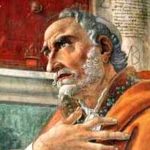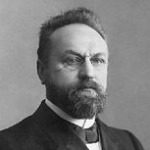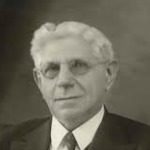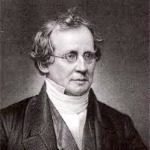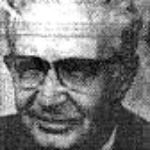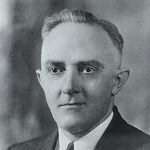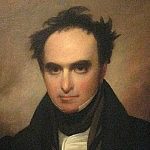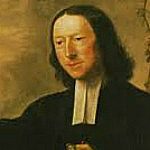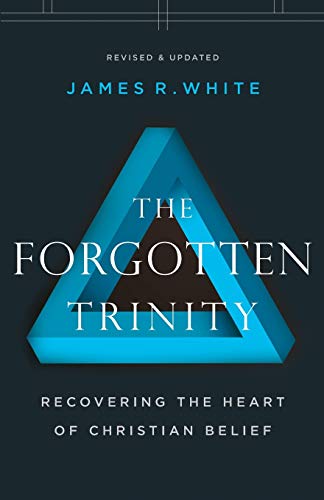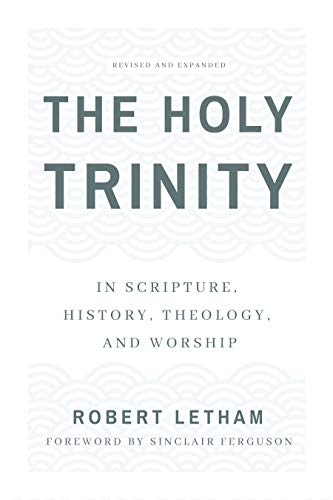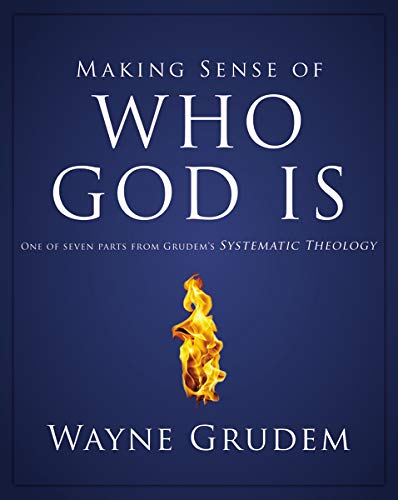Quotes about God-Trinity
“Baptizing them in the name of the Father, of the Son, and of the Holy Ghost.” The Father, Son, and Holy Ghost: there are three distinct persons: in the Name, not names; there is one essence.
A Puritan Golden Treasury, compiled by I.D.E. Thomas, by permission of Banner of Truth, Carlisle, PA. 2000, p. 297.
It is rashness to search, godliness to believe, safeness to preach, and eternal blessedness to know the Trinity.
A Puritan Golden Treasury, compiled by I.D.E. Thomas, by permission of Banner of Truth, Carlisle, PA. 2000, p. 297.
It is not easy to find a name that will suitably express so great an excellence, unless it is better to speak in this way: the Trinity, one God, of whom are all things, through whom are all things, in whom are all things. Thus the Father and the Son and the Holy Spirit, and each of these by Himself, is God, and at the same time they are all one God; and each of them by Himself is a complete substance, and yet they are all one substance. The Father is not the Son nor the Holy Spirit; the Son is not the Father nor the Holy Spirit; the Holy Spirit is not the Father nor the Son: but the Father is only Father, the Son is only Son, and the Holy Spirit is only Holy Spirit. To all Three belong the same eternity, the same unchangeableness, the same majesty, the same power. In the Father is unity, in the Son equality, in the Holy Spirit the harmony of unity and equality. And these three attributes are all one because of the Father, all equal because of the Son, and all harmonious because of the Holy Spirit.
Every [theological] error results from, or upon deeper reflection is traceable to, a departure in the doctrine of the Trinity.
In God there are no three persons alongside of, and separate from, one another, but only personal self-distinctions within the Divine essence, which is not only generically, but also numerically, one.
Systematic Theology, by permission of Banner of Truth, Carlisle, PA. 1998, p. 87. Get this book!
The divine essence is not divided among the three persons, but is wholly with all its perfection in each one of the persons so that they have a numerical unity of essence.
Systematic Theology, by permission of Banner of Truth, Carlisle, PA. 1998, p. 88. Get this book!
[The church] has never tried to explain the mystery of the Trinity, but only sought to formulate the doctrine of the Trinity in such a manner that the errors which endangered it were warded off.
Systematic Theology, by permission of Banner of Truth, Carlisle, PA. 1998, p. 89. Get this book!
The Trinity is a mystery…man cannot comprehend it and make it intelligible. It is intelligible in some of its relations and modes of manifestation, but unintelligible in its essential nature…. The real difficulty lies in the relation in which the persons in the Godhead stand to the divine essence and to one another; and this is a difficulty which the Church cannot remove, but only try to reduce to its proper proportion by a proper definition of terms. It has never tried to explain the mystery of the Trinity but only sought to formulate the doctrine of the Trinity in such a manner that the errors which endangered it were warded off.
Explain the Trinity? We can’t even begin. We can only accept it – a mystery, disclosed in Scripture. It should be no surprise that the triune Being of God baffles our finite minds. We should be surprised, rather, if we could understand the nature of our Creator. He would be a two-bit deity, not the fathomless Source of all reality.
In one sense the doctrine of the Trinity is a mystery that we will never be able to understand fully. However, we can understand something of its truth by summarizing the teaching of Scripture in three statements: 1. God is three persons. 2. Each person is fully God. 3. There is one God.
Biblicaltraining.org, www.biblicaltraining.org/library/trinity-wayne-grudem#sthash.xdBao7XT.dpuf. Used by Permission.
So what analogy shall we use to teach the Trinity?… It is best to conclude that no analogy adequately teaches about the Trinity, and all are misleading in significant ways.
Biblicaltraining.org, www.biblicaltraining.org/library/trinity-wayne-grudem#sthash.xdBao7XT.dpuf. Used by Permission.
The different functions that we see the Father, Son, and Holy Spirit performing are simply outworkings of an eternal relationship between the three persons, one that has always existed and will exist for eternity. God has always existed as three distinct persons: Father, Son, and Holy Spirit. These distinctions are essential to the very nature of God Himself, and they could not be otherwise… It may be said that there are no differences in deity, attributes, or essential nature between the Father, Son, and Holy Spirit. Each person is fully God and has all the attributes of God. The only distinctions between the members of the Trinity are in the ways they relate to each other and to the creation. In those relationships they carry out roles that are appropriate to each person.
Biblicaltraining.org, www.biblicaltraining.org/library/trinity-wayne-grudem#sthash.xdBao7XT.dpuf. Used by Permission.
But it should also be said that Scripture does not ask us to believe in a contradiction. A contradiction would be “There is one God and there is not one God,” or “God is three persons and God is not three persons,” or even (which is similar to the previous statement) “God is three persons and God is one person.” But to say that “God is three persons and there is one God” is not a contradiction. It is something we do not understand, and it is therefore a mystery or a paradox, but that should not trouble us as long as the different aspects of the mystery are clearly taught by Scripture, for as long as we are finite creatures and not omniscient deity, there will always (for all eternity) be things that we do not fully understand.
Biblicaltraining.org, www.biblicaltraining.org/library/trinity-wayne-grudem#sthash.xdBao7XT.dpuf. Used by Permission.
Indeed, the existence of fellowship within the Trinity (John 17:23-24) makes it evident that the creation of mankind was not intended to meet some deficiency in God. God was not lonely, bored, or incomplete before he created humanity. God is perfect in Himself, happy in the fellowship and love that exist from all eternity between the Father, Son, and Spirit. Thus, rather than being an attempt to make up for a lack within the Trinity, God created mankind simply because he delights in sharing Himself as an expression of his overflowing self-sufficiency.
[The Trinity is] the fundamental doctrine of Christianity.
The word "Trinity" is never used, nor is the doctrine of Trinitarianism ever explicitly taught in the Scriptures, but Trinitarianism is the best explanation of the biblical evidence. The theological exposition of the doctrine arose from clear…scriptural teaching. It is a crucial doctrine for Christianity because it focuses on who God is, and particularly on the deity of Jesus Christ. Because Trinitarianism is not taught explicitly in the Scriptures, the study of the doctrine is an exercise in putting together biblical themes and data through a systematic theological study and through looking at the historical development of the present orthodox view of what the biblical presentation of the Trinity is.
1. The Father is called God (John 6:27; 20:17; 1 Cor. 8:6; Gal. 1:1; Eph. 4:6; Phil. 2:11; 1 Pet. 1:2).
2. Jesus Christ, the Son is declared to be God. His deity is proven by the divine names given to Him, by His works that only God could do (upholding all things, Col. 1:17; creation, Col. 1:16, John 1:3; and future judgment, John 5:27), by His divine attributes (eternality, John 17:5; omnipresence, Matt. 28:20; omnipotence, Heb. 1:3; omniscience, Matt. 9:4), and by explicit statements declaring His deity (John 1:1; 20:28; Titus 2:13; Heb. 1:8).
3. The Holy Spirit is recognized as God. By comparing Peter’s comments in Acts 5:3 and 4, we see that in lying to the Holy Spirit (vs. 3), Ananias was lying to God (vs. 4). He has the attributes which only God can possess like omniscience (1 Cor. 2:10) and omnipresence (1 Cor. 6:19), and He regenerates people to new life (John 3:5-6, 8; Tit. 3:5), which must of necessity be a work of God for only God has the power of life. Finally, His deity is evident by the divine names used for the Spirit as “the Spirit of our God,” (1 Cor. 6:11), which should be understood as “the Spirit, who is our God.”
The Trinity of God, http://bible.org/article/trinity-triunity-god#P153_19537, Copyright ©1996-2005, All rights reserved.
The doctrine of the Trinity states that there is one God who is one in essence or substance, but three in personality. This does not mean three independent Gods existing as one, but three Persons who are co-equal, co-eternal, inseparable, interdependent, and eternally united in one absolute Divine Essence and Being.
The Trinity of God, http://bible.org/article/trinity-triunity-god#P153_19537, Copyright ©1996-2005, All rights reserved.
As in the case of God’s sovereignty and man’s volition (or the God-man mystery), there are three basic responses a person can make concerning the biblical concept of the Trinity. First, historically, men have either ignored it or rejected it as illogical and incompatible with human reason. Second, finding it incompatible with human reason, men have sought to solve the problem by reducing it to their own reason and in the process, they typically gravitated toward one extreme or another maintaining that God is one, or God is three, but He can’t be both. Third, historically and for the most part, the church has accepted it completely by holding both truths (God is three in one, triune) in a proper balance. Based on all the data of the Bible, the church has accepted this doctrine by faith though it is incomprehensible to our finite minds.
J. Hampton Keathley III The Trinity of God, http://bible.org/article/trinity-triunity-god#P153_19537, Copyright ©1996-2005, All rights reserved.
The doctrine of the Trinity is basic to the Christian religion. It is no exaggeration to assert that the whole of Christianity stands or falls with it.
There was never a time when God was not expressing love toward another and receiving love from another. The Father loves the Son, and the Son loves the Father. Love is bound up in the very nature of the Trinity. God cannot be God without love, because God is love.
The Story of Love by Michael Lawrence taken from Biblical Theology by Michael Lawrence, copyright 2010, Crossway Books, a division of Good News Publishers, Wheaton Illinois 60187, www.crosswaybooks.org. Page 147.
All sorts of people are fond of repeating the Christian statement that “God is love.” But they seem not to notice that the words “God is love” have no real meaning unless God contains at least two persons. Love is something that one person has for another person. If God was a single person, then before the world was made, He was not love.
The mind of man cannot fully understand the mystery of the Trinity. He who has tried to understand the mystery fully will lose his mind; but he who would deny the Trinity will lose his soul.
No illustration can fully communicate the Trinity, because the Trinity is God and always transcends the created order in essence, persons, and relationships. But as long as teachers make clear that every analogy will be to some extent inadequate, it may still be profitable to use these improper illustrations to explain why and how they fall short as adequate representations of the Trinity. By understanding that the Trinity is not like the three states of H20 (ice, water, vapor), the student learns to reject modalism. By learning that the Trinity is not like the three leaves of a single clover, he eschews partialism. By grasping that the Trinity is not like the light and heat emanating from the sun, he disclaims Arianism.
God the Father by John MacArthur and Richard Mayhue taken from Biblical Doctrine by John MacArthur and Richard Mayhue, copyright 2017, Crossway Books, a division of Good News Publishers, Wheaton Illinois 60187, www.crosswaybooks.org. Page 193.
The Trinity is a mystery in two senses. It is a mystery in the biblical sense in that it is a truth that was hidden until revealed. But it is also a mystery in that, in its essence, it is suprarational, ultimately beyond human comprehension. It is only partly intelligible to man, because God has revealed it in Scripture and in Jesus Christ. But it has no analogy in human experience, and its core elements (three coequal persons, each possessing the complete, simple divine essence, and each eternally relating to the other two without ontological subordination) transcend man’ s reason.
God the Father by John MacArthur and Richard Mayhue taken from Biblical Doctrine by John MacArthur and Richard Mayhue, copyright 2017, Crossway Books, a division of Good News Publishers, Wheaton Illinois 60187, www.crosswaybooks.org. Page 193.
The doctrine of the Trinity, simply put, is that God is absolutely and eternally one essence subsisting three distinct and ordered persons without division and without replication of the essence.
God the Father by John MacArthur and Richard Mayhue taken from Biblical Doctrine by John MacArthur and Richard Mayhue, copyright 2017, Crossway Books, a division of Good News Publishers, Wheaton Illinois 60187, www.crosswaybooks.org. Page 189.
Based on biblical evidence, the unprejudiced mind cannot doubt the existence of a plurality of persons in the Godhead without impugning the clarity, the inerrancy, and the inspiration of the Scriptures. Any accurate discussion of the Trinity must begin and end with what the Bible declares.
God the Son by John MacArthur and Richard Mayhue taken from Biblical Doctrine by John MacArthur and Richard Mayhue, copyright 2017, Crossway Books, a division of Good News Publishers, Wheaton Illinois 60187, www.crosswaybooks.org. Page 236.
The Trinity is revealed to us only in the Bible. God has revealed some things to us through nature and through conscience. But the Trinity is not among them. This He has revealed to us by supernatural revelation and by supernatural revelation alone.
The New Testament is just as much opposed as the Old Testament is to the thought that there are more Gods than one. Yet the New Testament with equal clearness teaches that the Father is God and the Son is God and the Holy Spirit is God, and that these three are not three aspects of the same person but three persons standing in a truly personal relationship to one another. There we have the great doctrine of the three persons but one God.
[The] doctrine is a mystery. No human mind can fathom it. Yet what a blessed mystery it is! The Christian’s heart melts within him in gratitude and joy when he thinks of the divine love and condescension that has thus lifted the veil and allowed us sinful creatures a look into the very depths of the being of God.
In the Being of God there are not three individuals, but only three personal self distinctions within the one Divine Essence (R.A. Finlayson).
Because the Father, the Son, and the Spirit are perfectly united in their essence, the three persons of the Trinity must be perfectly united both (a) in their saving intentions and (b) their saving acts. What the Father wills must be what the Son wills, and what the Son wills must be what the Spirit wills. Those whom the Father intends to save must be the same exact number as those whom the Son intends to save, and those whom the Son intends to save must be the same exact number as those whom the Spirit intends to save. And since Scripture teaches (a) that the Father has chosen to save a particular people and not all without exception, and since it teaches (b) that the Spirit will regenerate that same particular people and not all without exception, it also teaches (c) that the Son has atoned for that same particular people and not all without exception. To say otherwise is to strike at the heart of the unity of the Triune God. It is to undermine the doctrine of the Trinity, the most fundamental doctrine of Christianity. Unity in the Trinity demands a particular redemption.
Shepherd’s Conference 2022, Triune Salvation: Why the Unity of the Trinity Demands a Definite Atonement.
Seven Biblical Propositions: There is one God. The Father is God. The Son is God. The Spirit is God. The Father is not the Son. The Son is not the Spirit. The Spirit is not the Father
Shepherd’s Conference 2022, Triune Salvation: Why the Unity of the Trinity Demands a Definite Atonement.
Each person of the Trinity fully subsists in the undivided divine essence. While the persons can be distinguished from one another, they can never be divided from one another.
Shepherd’s Conference 2022, Triune Salvation: Why the Unity of the Trinity Demands a Definite Atonement.
Shepherd’s Conference 2022, Triune Salvation: Why the Unity of the Trinity Demands a Definite Atonement.
[God] is an eternal communion of three persons in undivided union.
It was the whole Trinity, which at the beginning of creation said, “Let us make man” (Gen. 1:26). It was the whole Trinity again, which at the beginning of the Gospel seemed to say, “Let us save man” (Mt. 3:16-17).
This truth is a great mystery. Let it be enough to receive and believe it, and let us ever abstain from all attempts at explanation. It is childish folly to refuse assent to things that we do not understand. We are poor crawling worms of a day, and at our best, know little about God and eternity. Suffice it for us to receive the doctrine of the Trinity in Unity, with humility and reverence, and to ask no vain questions. Let us believe that no sinful soul could be saved without the work of all three Persons in the blessed Trinity, and let us rejoice that Father, Son, and Holy Spirit, who co-operated to make man, do always co-operate to save him. Here let us pause. We may receive practically what we cannot explain theoretically.
To meditate on the three Persons of the Godhead is to walk in thought through the garden eastward in Eden and to tread on holy ground. Our sincerest effort to grasp the incomprehensible mystery of the Trinity must remain forever futile, and only by deepest reverence can it be saved from actual presumption.
Whoever desires to be saved should above all hold to the catholic faith.
Anyone who does not keep it whole and unbroken will doubtless perish eternally.
Now this is the catholic faith:
That we worship one God in trinity and the trinity in unity,
neither blending their persons
nor dividing their essence.
For the person of the Father is a distinct person,
the person of the Son is another,
and that of the Holy Spirit still another.
But the divinity of the Father, Son, and Holy Spirit is one,
their glory equal, their majesty coeternal.What quality the Father has, the Son has, and the Holy Spirit has.
The Father is uncreated,
the Son is uncreated,
the Holy Spirit is uncreated.The Father is immeasurable,
the Son is immeasurable,
the Holy Spirit is immeasurable.The Father is eternal,
the Son is eternal,
the Holy Spirit is eternal.And yet there are not three eternal beings;
there is but one eternal being.
So too there are not three uncreated or immeasurable beings;
there is but one uncreated and immeasurable being.Similarly, the Father is almighty,
the Son is almighty,
the Holy Spirit is almighty.
Yet there are not three almighty beings;
there is but one almighty being.Thus the Father is God,
the Son is God,
the Holy Spirit is God.
Yet there are not three gods;
there is but one God.Thus the Father is Lord,
the Son is Lord,
the Holy Spirit is Lord.
Yet there are not three lords;
there is but one Lord.Just as Christian truth compels us
to confess each person individually
as both God and Lord,
so catholic religion forbids us
to say that there are three gods or lords.The Father was neither made nor created nor begotten from anyone.
The Son was neither made nor created;
he was begotten from the Father alone.
The Holy Spirit was neither made nor created nor begotten;
he proceeds from the Father and the Son.Accordingly there is one Father, not three fathers;
there is one Son, not three sons;
there is one Holy Spirit, not three holy spirits.Nothing in this trinity is before or after,
nothing is greater or smaller;
in their entirety the three persons
are coeternal and coequal with each other.So in everything, as was said earlier,
we must worship their trinity in their unity
and their unity in their trinity.Anyone then who desires to be saved
should think thus about the trinity.But it is necessary for eternal salvation
that one also believe in the incarnation
of our Lord Jesus Christ faithfully.Now this is the true faith:
That we believe and confess
that our Lord Jesus Christ, God’s Son,
is both God and human, equally.He is God from the essence of the Father,
begotten before time;
and he is human from the essence of his mother,
born in time;
completely God, completely human,
with a rational soul and human flesh;
equal to the Father as regards divinity,
less than the Father as regards humanity.Although he is God and human,
yet Christ is not two, but one.
He is one, however,
not by his divinity being turned into flesh,
but by God’s taking humanity to himself.
He is one,
certainly not by the blending of his essence,
but by the unity of his person.
For just as one human is both rational soul and flesh,
so too the one Christ is both God and human.He suffered for our salvation;
he descended to hell;
he arose from the dead;
he ascended to heaven;
he is seated at the Father’s right hand;
from there he will come to judge the living and the dead.
At his coming all people will arise bodily
and give an accounting of their own deeds.
Those who have done good will enter eternal life,
and those who have done evil will enter eternal fire.This is the catholic faith:
one cannot be saved without believing it firmly and faithfully.
There is one only and true God, but in the unity of the Godhead there are three coeternal and coequal Persons, the same in substance but distinct in subsistence.
God the Father is called the “God of peace” (Hebrews 13:20). God the Son, the “Prince of peace” (Isaiah 9:6). God the Holy Ghost, the “Spirit…of peace” (Ephesians 4:3).
A Puritan Golden Treasury, compiled by I.D.E. Thomas, by permission of Banner of Truth, Carlisle, PA. 2000, p. 206.
God is but one, yet are there three distinct persons subsisting in one Godhead. This is a sacred mystery, which the light within man could never have discovered. As the two natures in Christ, yet but one person, is a wonder; so three persons, yet but one Godhead. Here is a great deep, the Father God, the Son God, the Holy Ghost God; yet not three Gods, but one God. The three persons in the blessed Trinity are distinguished, but not divided; three substances, but one essence. This is a divine riddle, where one makes three, and three make one. Our narrow thoughts can no more comprehend the Trinity in Unity, than a nut-shell will hold all the water in the sea.
In the body of the sun, there are the substance of the sun, the beams, and the heat; the beams are begotten of the sun, the heat proceeds both from the sun and the beams; but these three, though different, are not divided; they all three make but one sun: so in the blessed Trinity, the Son is begotten of the Father, the Holy Ghost proceeds from both; yet though they are three distinct persons, they are but one God.
The Trinity is purely an object of faith; the plumbline of reason is too short to fathom this mystery; but where reason cannot wade, there faith may swim. There are some truths in religion that may be demonstrated by reason; as that there is a God: but the Trinity of persons in the Unity of essence is wholly supernatural, and must be believed by faith. This sacred doctrine is not against reason, but above it.
If there be one God subsisting in three persons, then let us give equal reverence to all the persons in the Trinity. There is not more or less in the Trinity; the Father is not more God than the Son and Holy Ghost. There is an order in the Godhead, but no degrees; one person has not a majority or super eminence above another, therefore we must give equal worship to all the persons.
The do not pretend to fully understand the arithmetic of heaven.
Bring me a worm that can comprehend a man, and then I will show you a man that can comprehend the triune God.

